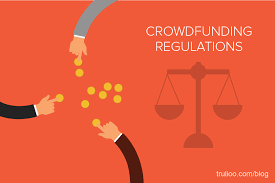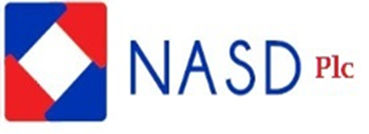
In our newsletter last week, we continued our series on Crowdfunding and highlighted the potential benefits accruable to MSMEs who seek patient capital by sourcing via Crowdfunding.
Link- https://mailchi.mp/fff091ffb8d9/nasd-otc-weekly-newsletter-1893805?e=e3b2fb30c6
In this week’s edition on crowdfunding, we shall discuss the importance of regulating Crowdfunding as a source of capital for Start-ups; the consequence/outcome if the entire process is left unregulated. The importance of capping excesses of all players – MSMEs, Investors, Crowdfunding Platforms/Portals.
The goal of the proposed Rules on Crowdfunding is to ease the means of funding that had long been considered risky. Also, to provide an opportunity for retail investors to participate in start-up investing. It is a great attempt at opening the capital markets both to businesses raising capital and investors desiring to invest in small businesses.
ISSUER LIMITS.
- CAP ON AMOUNT TO BE RAISED
According to the proposed SEC Guidelines, MSMEs seeking to raise capital on a Crowdfunding Platform are limited to a 12-month period within which they can raise funds:
- The maximum amount which may be raised by a Medium enterprise shall not exceed ₦100 Million.
- The maximum amount which may be raised by a Small enterprise shall not exceed ₦70 Million.
- The maximum amount which may be raised by a Micro enterprise shall not exceed ₦50 Million.
MSMEs must for each funding round reach minimum fund raising threshold before funds can be disbursed. Where the minimum threshold is not achieved the monies pooled are returned to the Investors.
There is also a short list of Instruments approved by the Commission for issuance through a crowdfunding portal from time to time; these include equity/shares, plain vanilla bonds or debentures, and simple contracts.
- DISCLOSURE REQUIREMENTS
According to the proposed SEC Guidelines, MSMEs are bound by disclosure requirements. MSMEs are required to provide reviewed financial statements to the SEC, investors, and crowdfunding portals. They are also bound by ongoing disclosure requirements i.e. quarterly and annually. The disclosure requirements and use of professionals in vetting these reports is important to protect investors who may be less sophisticated.
INVESTOR LIMITS
The proposed SEC rules prescribed limits for investors’ contribution to crowdfunding campaigns. Interestingly, the caps are not a single campaign, but aggregate on all campaigns. These are aggregates over all offerings in a twelve-month period.
- Retail investors may not invest more than 10% of their annual income in a calendar year.
- Sophisticated, High Net worth and Qualified Institutional Investors are not subject to the limits set forth above.
Investors are allowed a cooling off period of 48 hours from the date of close of a campaign within which they may withdraw their investment. If there is a material adverse change, affecting the project or the issuer, investors may rescind the investment within 7 days from the date the material adverse change became public.
Where an investor cancels the offer or agreement to purchase securities or investment instruments, all funds which may have been debited from or blocked in the account of the investor shall be refunded or released within 48 hours of the request to cancel. This is to adequately protect an Investor from suffering any undue loss.
CROWDFUNDING PORTALS
It is important to state that the Crowdfunding portals are saddled mostly with vetting an Issuer and protecting an Investor simultaneously. First, Issuers conducting offerings must provide educational materials to investors explaining a laundry list of things which includes, their investment process, the types of securities offered as well as resale restrictions and investment limits.
Secondly, due diligence must be performed on the issuers to a ‘reasonable’ basis to ensure that they are not committing fraud, as well as on investors to ensure their compliance with investment limitations. In addition to those requirements, which are generally meant to protect against fraud, the portal must monitor offerings, investors and assist with transparency.
Conclusion:
NASD in its capacity as a regulator shall continue to ensure transparency within the capital market and also protect investors with regards to transactions and activities on our market. We believe our values position us suitably to provide excellent service to our stakeholders and contribute meaningfully to the growth of the Nigerian Capital Market.
NASD Plc
Creating liquidity…transparently

